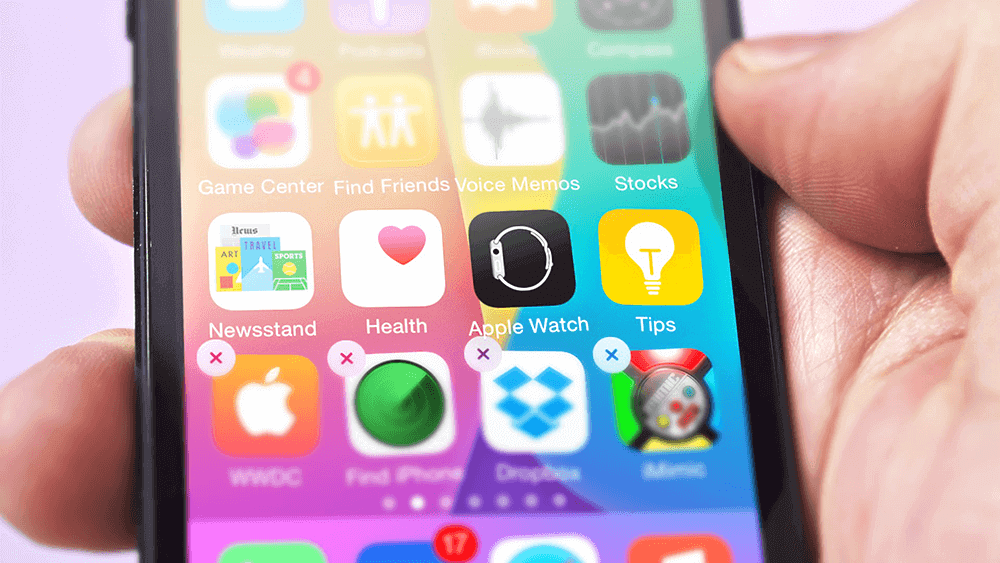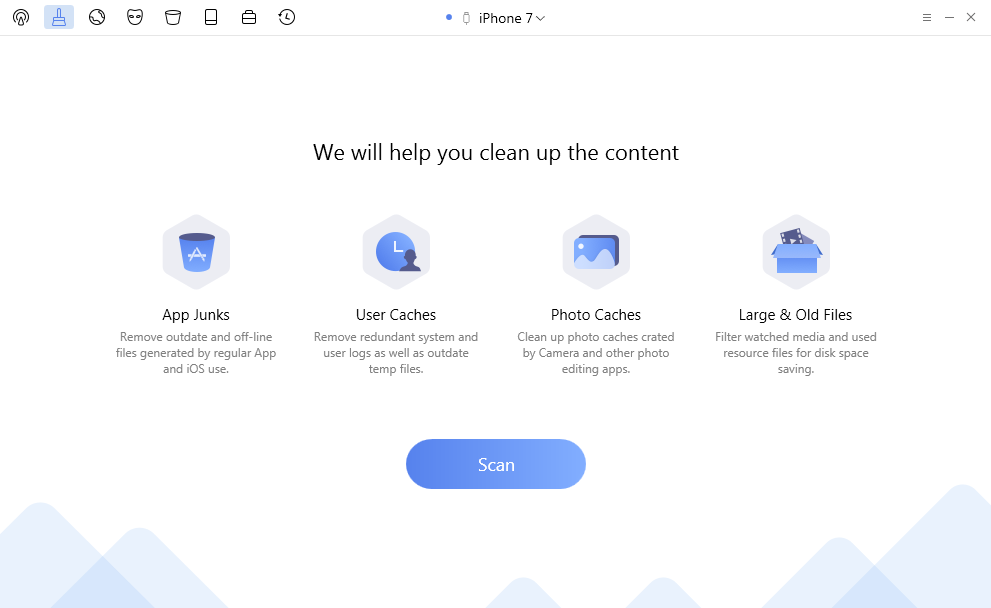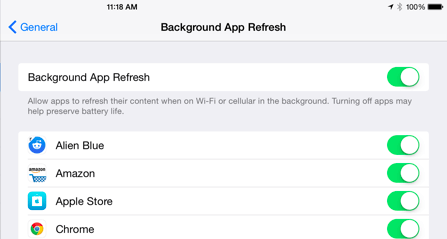How to Speed Up Slow iPhone after Updating to iOS 18
iPhone or iPad running slower after updating to iOS 18? This guide will share you 8 simple yet efficient methods to solve the problem and help you speed up your slow iPhone iPad in minutes.
Common iPhone Tips
iPhone Backup Tips
iPhone Cleanup Tips
Apple says it is always better to work on new iOS that will make iPhone run quickly and smoothly. But it seems not true for the old iOS devices, such as iPhone 6, iPad 2 or iPad mini. Apple has just released the latest iOS 18 beta version for iPhone.
However, according to the current feedback from our users, it also has the same problem – The phone runs slower after upgrading. If you have also encountered a slow iPhone after updating to iOS 18, here are some quick tips and tools to speed up your old and slow iPhone in iOS 18.
Before trying the tips below, such as deleting Apps, cleaning iPhone storage, or resetting to the default setting, you’d better backup your iPhone/iPad/iPod touch. Don’t Miss: 3 Methods to Backup iPhone >>
1. Close Unused Running Apps/Games
You might have opened too many apps and games on your iOS devices. So just double-click the Home button and slide to shut down the apps/games you are not using to free up memory on your iPhone or iPad.
2. Turn off Transparency and Motion
These effects consume battery and CPU on your device while giving you a good visual experience. To make your iPhone iPad run faster, you can try to disable these cool effects, which would be useful especially when you use an old iPhone or iPad.
To Reduce Transparency
Settings > General > Accessibility > Increase Contrast.
To Reduce Motion
Settings > General > Accessibility > Reduce Motion.
3. Speed up Your Safari
Do you remember the last time you organized your Safari history and bookmarks? Actually, we almost never organize our Safari info and clean browsing junks. That’s partly why our iOS 18 goes slow when we surf online by using Safari.
To Organize Bookmarks and History
It’s easy to organize your browser bookmarks and history. Just run your Safari app and click the Book icon, you will find all of your history and bookmarks there. You can delete any history or bookmark items, or edit your bookmarks.
To Delete All Browsing Data and History
Go to Settings > Choose Safari > Tap on Clear History and Website Data.
To Delete All Browsing Data of One Specific Website
Go to Settings > Choose Safari > Choose Advanced > Tap on Website Data.
4. Delete Apps/Games You Almost Never Use/Play
Some apps you downloaded from Apple store seem unnecessary. You may forget about them and almost never use them. These unused apps may take up not only storage but also the CPU resource of your iOS device. Hence, deleting these unused apps could be an effective way to speed up your iPhone/iPad.

Delete Apps
Removing apps from the iPhone is quite easy. Just press the app icon for few seconds until it wobbles and then click the “X” icon on the top-left corner of the app. Or you can go to setting > general > usage > manage storage, then choose and delete unwanted apps.
In addition, there are some iOS content managing tools, such as AnyTrans, you can use to simultaneously remove multiple apps you don’t want.
5. Clean Up Storage Space By Deleting Large Files
Having no enough space may results in a slow iPhone/iPad, especially when it is an old iPhone/iPad. Therefore, you should check how much space you have used on your iOS device and which apps/files take the most of your iPhone/iPad storage. Usually, media files, such as songs, pictures, and videos, take up the most storage on an iPhone/iPad. Also, the secret “other” data and the app junk files/caches will occupy your iPhone/iPad memory.

Free Up Storage with PhoneClean
So what you should do is just organize these files by deleting, backing up, or transferring to speed up your slow iPhone. Of course, there are also some smart apps that could make it free up space and automatically delete the junk files on your iPhone/iPad/iPod touch, such as PhoneClean.
6. Turn off Background Apps Refresh and Auto-Update
Background apps activities are often the culprit slowing down your iOS operating system. Luckily, Apple offers its users the features to turn off background refresh and auto-update to make their iPhone/iPad have a good performance.

Disable Background Apps Refresh
How to turn off background apps refresh
Setting > General > Turn off Background App Refresh.
How to stop apps update automatically
Setting > General > iTunes > App Store > Turn off Updates.
7. Restart or Force Restart Your Slow iPhone/iPad
It is extremely easy to power off your iPhone/iPad and then turn on it. In this way, all temporary processes created by iOS apps will be removed automatically, which is very useful for speeding up your iOS 15 devices sometimes. So if you find your iPhone or iPad runs slow, have a try to restart your device by following the steps below.
Restart your iPhone X or later
Step 1: Press and hold the Side button and either volume button until the power off slider appears on the screen.
Step 2: Drag the slider to turn your device completely off.
Step 3: After your device turns off, press and hold the Side button again until you see the Apple logo.
Restart your iPhone 8 or earlier or iPod touch
Step 1: Press and hold the Top (or Side) button until the power off slider appears.
Step 2: Drag the slider to turn your device completely off.
Step 3: After your device turns off, press and hold the Top (or Side) button again until you see the Apple logo.
8. Reset Your iOS Device to Default Setting
This is the last resort Apple provides for you if all tips above don’t make a big difference in speeding up slow iPhone/iPad. This method will erase all of the data on your iOS device, including messages, contacts, photos, music, and so on.
Additionally, all iPhone/iPad settings will go back to the factory default condition. Of course, nobody wants to lose all data from iPhone. Therefore, make sure that you have backed up your important data on your iDevice before any resetting. Settings > General > Reset > Erase All Content and Settings.
The Bottom Line
That’s all about how to speed up slow iPhone, iPad, and iPod touch after updating to iOS 18. If you will have other problems while speeding up your iOS devices, feel free to leave a comment in the section below. We will go through the problem and reply to you soon.
More Related Articles
Product-related questions? Contact Our Support Team to Get Quick Solution >

